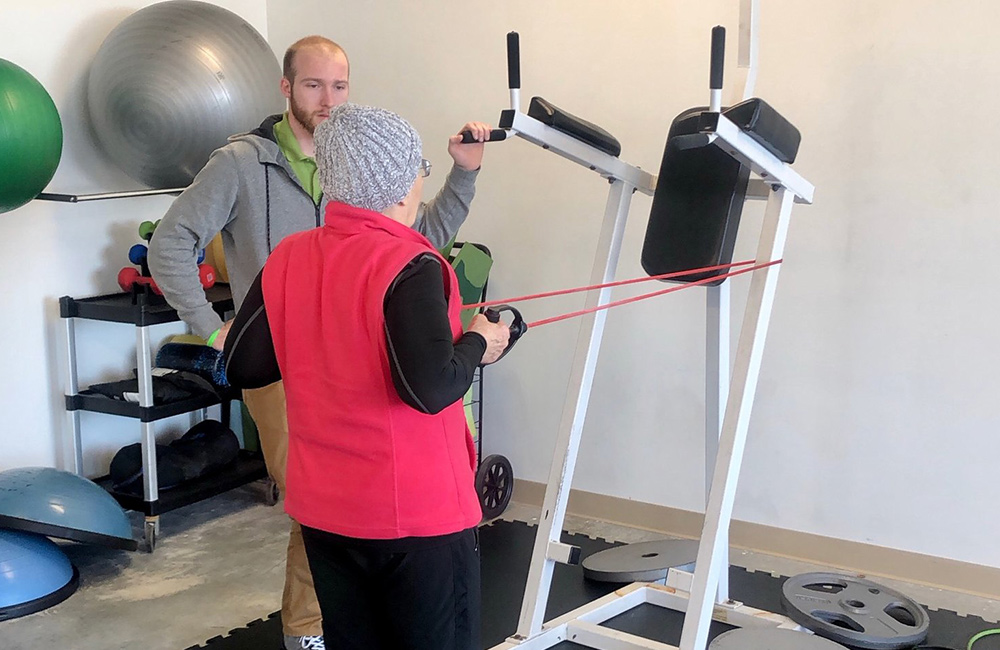When I first started conducting research in the field of exercise oncology 16 years ago, I didn’t have much background knowledge about cancer. I assumed that patients would be too sick and too tired to exercise. Luckily, I quickly learned about the value of exercise during cancer treatment – and this knowledge has helped shape our work at Maple Tree.
Another misconception I had was that people who had cancer could expect to lose large amounts of weight. Of course, this does happen. In fact, unexplained weight loss of at least 10 pounds is actually an indication that cancer might be present in the body. Further, cancer cachexia, or progressive muscle wasting and unintentional weight loss, is common in more than 50% of advanced cancers.
However, in many hormone-driven cancers – especially breast cancer – the exact opposite is true.
One of our very first patients experienced this. When she called to sign up for our services, she lamented that when she was first diagnosed with breast cancer, she had expected to lose weight. Instead, she ended up gaining more than 35 pounds in 3 months during treatment.
Her story is very common. In fact, research has demonstrated that premenopausal women receiving adjuvant chemotherapy are at the greatest risk of weight gain during breast cancer treatment.
Cancer. A 35-pound weight gain. Surgery that significantly alters your appearance. Hair loss. Potential loss of fertility…all can be very difficult to emotionally process.
Not only that, but this type of weight gain is often stubborn and very difficult to lose.
If left unaddressed, added weight can increase the risk of cancer mortality, and may lead to lymphedema, heart disease, and diabetes.
But there is hope!
Healthy eating and increased physical activity that leads to even minor weight losses of 5% to 10% still have significant health benefits to the cancer survivor, including reduced risk of recurrence and improved survival rates.
Therefore, it is recommended that after cancer treatment, weight gain be managed through a combination of healthy diet and physical activity.
Physical Activity Recommendations
Research shows that cancer survivors who complete approximately 3 hours of moderate-intense exercise per week had a 30% lower overall mortality compared to less active survivors. In addition, active cancer survivors can expect to see an improved quality of life, body image, mood, bone health, and physical condition, and at the same time experience reductions in fatigue, stress, and anxiety.
In light of this and other findings, the American Cancer Society has made the following recommendations for cancer survivors to maintain their weight:
- Avoid inactivity and return to normal daily activity as soon as possible after diagnosis.
- Get regular low impact physical activities, such as walking, biking, or swimming to optimize immune system function during treatment
- Aim for at least 150 minutes of exercise each week.
- Perform strength training exercises at least twice each week.
Nutrition Recommendations
During cancer treatment, the overall nutritional goals should be to prevent or resolve nutrient deficiencies, achieve or maintain a healthy weight, preserve lean body mass, and reduce nutrition-related side effects.
Some guidelines put forth by the American Cancer Society to maximize quality of life include:
- Limit high-calorie foods and beverages.
- Reduce consumption of white flour.
- Choose 100% whole grain foods (brown rice, quinoa, whole grain breads).
- Eat at least 2 ½ cups of fruits and vegetables each day.
- Limit intake of red and processed meat.
- Limit saturated and trans fats, found in red meat, fried foods, margarine, and donuts.
- Eat “good” fats (polyunsaturated and monounsaturated fats), found in olive and canola oil, nuts, natural nut butters, and avocados.
If you find yourself feeling overwhelmed at the idea of learning how to eat healthy and exercise effectively to lose weight, you might want to consider our Survivor Strong online-weight loss program! Here you will have group support and accountability to successfully reach your goals! Our next group begins January 28, 2019. Check out our webpage for details or to register.

